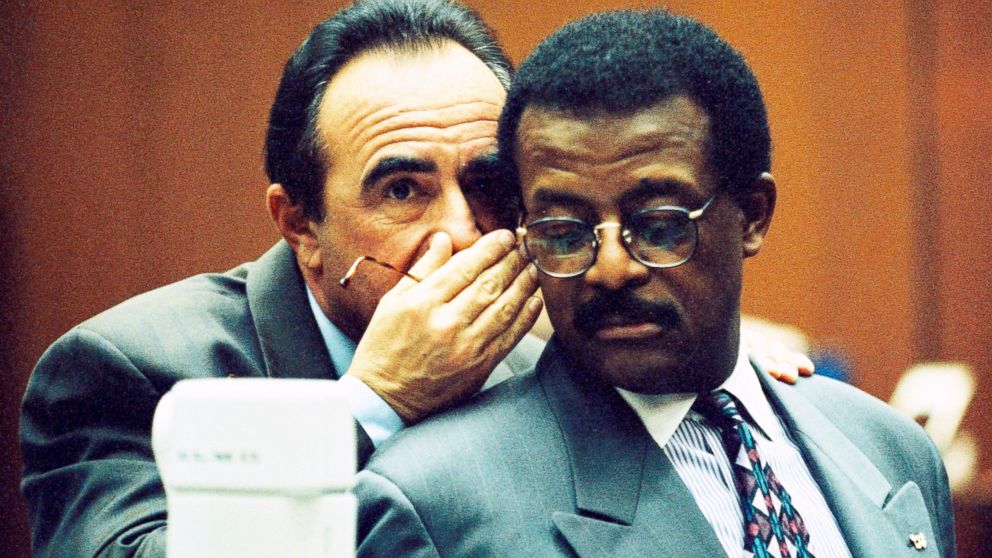When the name OJ Simpson is mentioned, it often evokes a whirlwind of emotions and memories tied to one of the most infamous trials in American history. The story of Judge OJ Simpson transcends mere legal proceedings; it is a tale of race, celebrity, and justice intertwined in a courtroom drama that captivated the nation. As we delve deeper into the life and legacy of OJ Simpson, this article aims to provide a balanced and factual overview of his journey, from his early days as a sports icon to his role as a defendant in a high-profile murder case.
OJ Simpson's story is more than just a courtroom saga. It is a reflection of societal issues, media influence, and the complexities of the American legal system. His trial remains one of the most discussed legal cases in history, shaping public perception of justice and celebrity involvement in the legal process.
Through this article, we will explore various facets of OJ Simpson's life, including his career as an athlete, actor, and eventually, his infamous trial. By examining the evidence, testimonies, and legal strategies, we aim to provide readers with a comprehensive understanding of the man behind the headlines.
Read also:Junior Express Cast A Comprehensive Guide To The Rising Stars
Table of Contents
- Biography of OJ Simpson
- Early Life and Career
- OJ Simpson as a Sports Icon
- Transition to Acting Career
- The Trial: A Nation-Wide Sensation
- Key Legal Arguments and Evidence
- Media Impact on the Trial
- Public Opinion and Social Implications
- Aftermath of the Trial
- Legacy of Judge OJ Simpson
Biography of OJ Simpson
Early Life and Career
Orenthal James Simpson, commonly known as OJ Simpson, was born on July 9, 1947, in San Francisco, California. From an early age, OJ displayed a remarkable talent for sports, particularly football. His athletic prowess earned him a scholarship to the University of Southern California (USC), where he became one of the most celebrated college football players in history.
During his time at USC, OJ Simpson set numerous records and won the prestigious Heisman Trophy in 1968. His speed, agility, and powerful running style made him a standout player, laying the foundation for his future career in professional sports.
Key Achievements in Early Life
- Won the Heisman Trophy in 1968
- Set multiple NCAA records
- Became a national sports icon during his college years
OJ Simpson as a Sports Icon
After graduating from USC, OJ Simpson was drafted by the Buffalo Bills in the 1969 NFL Draft. His professional football career was nothing short of spectacular. Over the course of his career, OJ set numerous records, including becoming the first player in NFL history to rush for over 2,000 yards in a single season.
His accomplishments on the field earned him a place in the Pro Football Hall of Fame. OJ Simpson's legacy as a sports icon is undeniable, and his influence extended beyond the game, making him a household name across the United States.
Major NFL Achievements
- First player to rush for over 2,000 yards in a season
- Inducted into the Pro Football Hall of Fame in 1985
- Named NFL MVP twice
Transition to Acting Career
Following his retirement from professional football, OJ Simpson transitioned into the entertainment industry. He appeared in several films and television shows, showcasing his charisma and charm to a broader audience. One of his most notable roles was in the "Naked Gun" series, where he played himself, adding a comedic touch to his public persona.
His acting career, although not as prolific as his sports career, further solidified his status as a celebrity. OJ Simpson's ability to adapt and thrive in different fields demonstrated his versatility and appeal.
Read also:Railey Diesel Onlyfans A Comprehensive Look At Her Rise And Success
Notable Acting Roles
- "The Naked Gun" series
- "Capricorn One"
- "The Towering Inferno"
The Trial: A Nation-Wide Sensation
In 1994, OJ Simpson's life took a dramatic turn when he became the central figure in one of the most high-profile murder cases in American history. Accused of the brutal murders of his ex-wife, Nicole Brown Simpson, and her friend, Ronald Goldman, the trial captivated the nation and became a media spectacle.
The trial, which lasted from November 1994 to October 1995, was filled with twists and turns, including controversial evidence, star-studded legal teams, and intense media coverage. The verdict, which found OJ Simpson not guilty, sparked widespread debate and discussion about race, justice, and the American legal system.
Key Legal Arguments and Evidence
The prosecution's case against OJ Simpson was built on a combination of physical evidence, witness testimonies, and forensic analysis. Key pieces of evidence included a bloody glove found at the crime scene, DNA analysis, and a recorded 911 call made by Nicole Brown Simpson.
However, the defense team, led by the renowned attorney Johnnie Cochran, successfully raised doubts about the integrity of the evidence and the investigation process. Their famous line, "If it doesn't fit, you must acquit," became a rallying cry for the defense's argument regarding the alleged mishandling of the bloody glove.
Evidence Summary
- Bloody glove found at the crime scene
- DNA evidence linking OJ to the crime
- 911 call from Nicole Brown Simpson
Media Impact on the Trial
The OJ Simpson trial was one of the first major legal cases to be extensively covered by the media. Cable news networks, newspapers, and magazines provided minute-by-minute updates, turning the trial into a national obsession. The media's role in shaping public perception was significant, with coverage often reflecting broader societal issues such as race, celebrity culture, and the justice system.
The trial's media coverage also highlighted the ethical dilemmas faced by journalists and the potential influence of media on legal proceedings. It raised questions about the balance between the public's right to know and the defendant's right to a fair trial.
Public Opinion and Social Implications
Public reaction to the OJ Simpson trial was deeply divided, with opinions often split along racial lines. Many African Americans viewed the trial as a reflection of systemic racism within the legal system, while others saw it as a miscarriage of justice. The case reignited discussions about race relations in America and the challenges faced by minority communities in the judicial process.
Beyond race, the trial also sparked conversations about domestic violence, celebrity privilege, and the role of media in shaping public opinion. These discussions continue to resonate in contemporary discourse about justice and equality.
Aftermath of the Trial
Following the trial, OJ Simpson's life remained in the public eye. Although acquitted of criminal charges, he was later found liable in a civil lawsuit brought by the families of Nicole Brown Simpson and Ronald Goldman. This resulted in a substantial financial settlement, further complicating his post-trial life.
In 2008, OJ Simpson was convicted of armed robbery and kidnapping in a Las Vegas hotel room incident, leading to a lengthy prison sentence. His release in 2017 marked another chapter in his complex life story, with continued public interest in his actions and statements.
Legacy of Judge OJ Simpson
OJ Simpson's legacy is multifaceted and enduring. He remains a polarizing figure, symbolizing both the triumphs and failures of the American Dream. His story serves as a cautionary tale about the intersection of fame, race, and justice, while also highlighting the enduring impact of media on public perception.
As we reflect on the life and career of OJ Simpson, it is important to recognize the broader societal implications of his case. The lessons learned from his trial continue to inform discussions about race, media, and the justice system, ensuring that his legacy will be remembered for generations to come.
Final Thoughts
In conclusion, the story of OJ Simpson is a complex narrative that transcends the confines of a single trial. It is a tale of triumph, tragedy, and transformation, offering valuable insights into the human condition and the societal structures that shape our lives.
We invite you to share your thoughts and reflections on this article. Your feedback and engagement are essential in fostering meaningful discussions about the topics we cover. Feel free to leave a comment, share the article, or explore other content on our site for further insights into the world of law, justice, and society.


